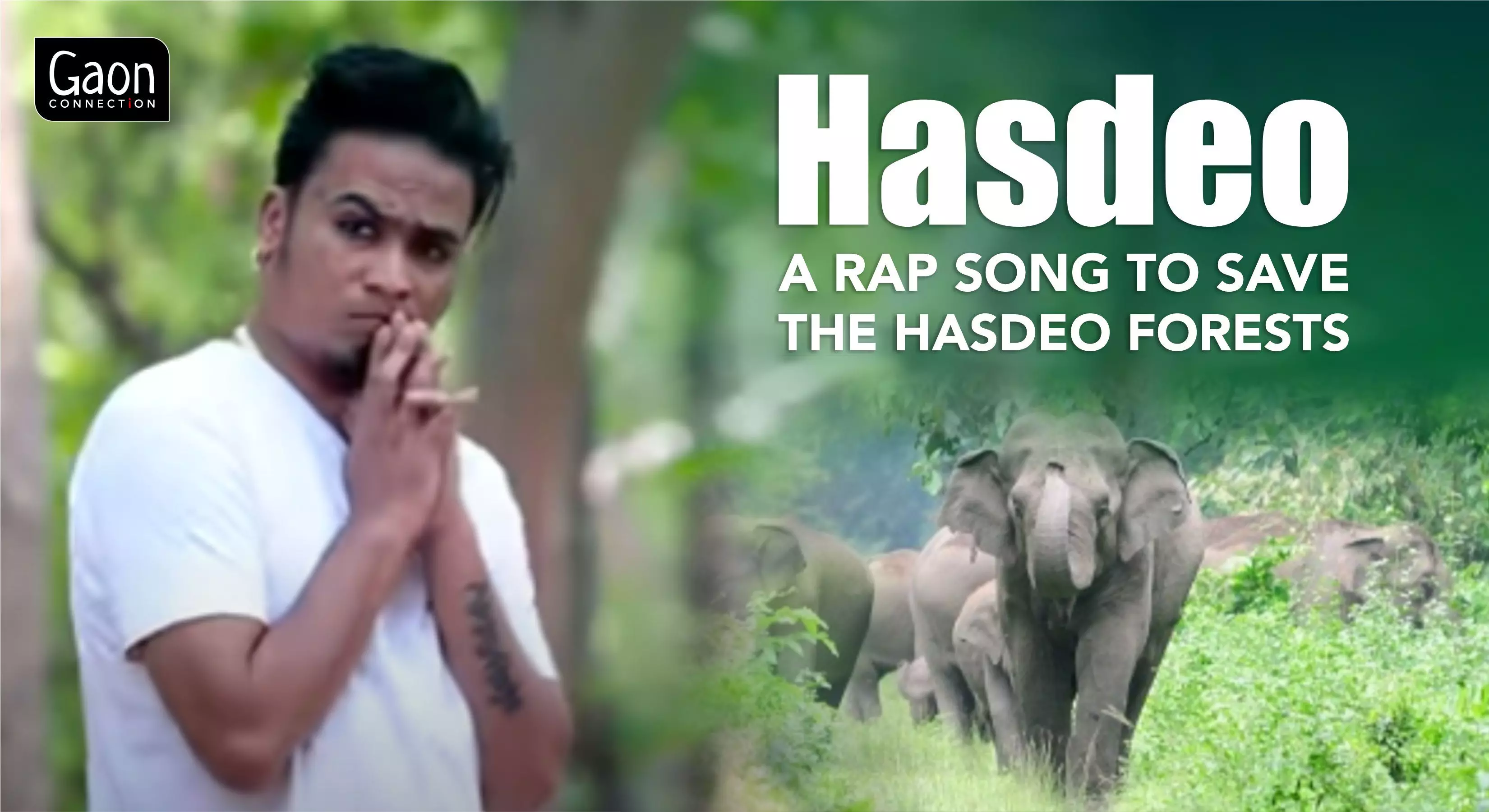A Rap Song to Save Hasdeo Forests
Not for nothing is music called a universal language. Globally, singers are using music to support movements to protect the environment. Chhattisgarh-based Appy Raja has released his latest rap – Hasdeo – to register his protest against coal mining in the state’s Hasdeo forests.
 गाँव कनेक्शन 13 May 2022 11:40 AM GMT
गाँव कनेक्शन 13 May 2022 11:40 AM GMT

Large tracts of the ecologically sensitive Hasdeo forests in Chhattisgarh are in peril of being razed down to make way for coal mining activities and the local tribal communities have been protesting against the project for the last several years.
Now, singer Appy Raja has joined the 'Save Hasdeo' movement. However, he has registered his protest against the mining project in a unique way – by rapping about it. The song is called Hasdeo.
"I am not a writer. I am a forest and my name is Hasdeo…" begins the rapper who hails from Chhattisgarh. In the background are the lush green forests of the region. Appy Raja, speaking in the voice of the forest, warns humans of dire consequences if they do not stop desecrating Nature. The forests have remained silent for years as humankind has unleashed horrors on its land. But not any more and it is payback time.
No amount of money can buy back clean air, pure water and fertile land, raps Appy Raja, as behind him a cataclysmic scene unfolds of explosives tearing open the land and black smoke billowing out, spreading poison for miles. When the land is stripped of its natural resources, what will the future generations feed on? Will children eat coal, asks the rapper.
Jal Jungle Jameen ko bachchao, he pleads. Save the water bodies, land and forests, otherwise, there will be hell to pay, he sings.
Music as means to protest
Not for nothing is music called a universal language. Unlike debates, discussions and conversations that become the preserve of niche groups of people, and leave out the very people who are directly impacted about it, music is inclusive and effective.
Music has been for years used as a voice of protest, with remarkable success with the masses without any barriers of age, caste or creed. While rap and hip hop have been a medium of protest and dissent and rebellion in the western world for long, India too has borrowed the rap to hit home the point.
Within 48 hours of it being released in August 2015, the music video Kodaikanal Won't sung by rapper Sofia Ashraf to the tune of Grammy award winner Niki Minaj's Anaconda, gathered 300,000 views. It was a protest rap demanding that Unilever pull up its socks and right the wrongs it had done by dumping toxic mercury wastes in the forests of Kodaikanal and endangering the lives of its employees.
A few years later in June 2018, a sequel to this video was launched called Kodaikanal still won't. This time, along with Sofia Ashraf, sang Carnatic vocalist and Ramon Magsaysay award winner TM Krishna, and indie rocker Amrit Rao.
The singers accused Unilever of dragging its feet, and of environmental racism as it had not done enough to clean up the mercury in the environment that was still way higher than what was considered 'safe' for human and wildlife inhabitation in the western world.
TM Krishna, yet again, used the classical Carnatic genre to sing Poramboke, about the impact of industrial pollution on Chennai's Ennore Creek that is critical to flood security and water security. Because of indiscriminate construction, miles of wetlands and portions of the rivers and backwaters have been swallowed up, endangering livelihoods of fishermen, aquatic life, birdlife and precious mangroves.
Eli, a rapper from Ghana kickstarted a campaign with a song Gold Coast, and along with other musicians roped in the young people of the country into the conversation.
Gaon Connection did something similar in its collaborative series called Meri Pyaari Zindagi, with the WHO (SERO) to speak about alcoholism. Gaon Connection's founder Neelesh Misra used the medium of story telling, poetry and qawwali to speak of rising alcoholism in the country.
Meanwhile, Appy Raja's Hasdeo video is garnering a lot of views. Will it be enough to stem the destruction remains to be seen. But it has started conversations going.
hasdeo #Chhatisgarh #environment rap song #Music #story
More Stories




